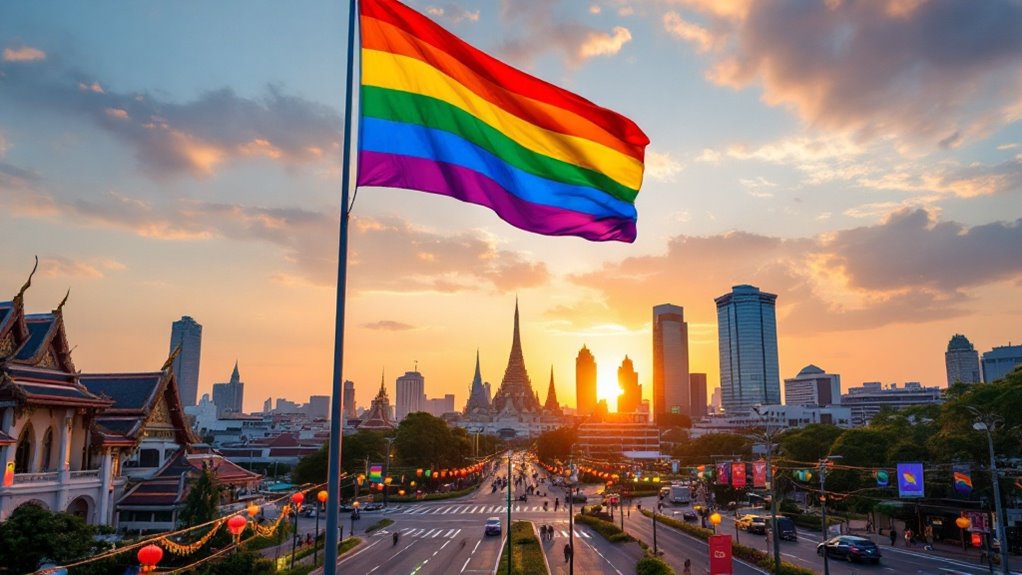Asian seniors are opting for resort-style retirement communities, often referred to as ‘paradise’ settings, over traditional nursing homes due to cultural preferences for family-supported elder care. Economic and urbanization pressures further influence this choice, as younger generations migrate to urban areas, reducing family caregiving capacity. These communities offer a higher quality of life and autonomy. Limited specialized elderly care facilities in Asia also contribute to this trend. Further exploration will reveal more about these evolving preferences.
In numerous Asian countries, a growing number of seniors are opting for “paradise-like” living arrangements over traditional nursing homes, reflecting significant cultural, demographic, and economic shifts. This trend is partly driven by an enduring emphasis on filial piety, which traditionally promotes family-based elder care. Cultural norms favor aging at home, where elders are respected and cared for by family members, making nursing homes a less desirable option. However, as family sizes shrink and urbanization increases, the capacity for families to provide home-based care is diminishing. Increased economic pressures and the migration of younger adults to urban areas further limit the ability of families to care for their elders at home. This is compounded by the rising costs of nursing home care, which many families find prohibitive, despite the availability of public subsidies and insurance coverage in some regions. As a result, wealthier seniors are increasingly choosing to reside in community or resort-style living arrangements, commonly referred to as “paradise”. These settings offer social, recreational, and health support services, providing a higher quality of life and autonomy. Moreover, the availability of specialized elderly care facilities remains limited across Asia, with low occupancy rates in areas such as China. Concerns about the quality, cultural appropriateness, and language access in these facilities deter many families. In response, there is a gradual development of more culturally sensitive nursing homes, although these remain insufficient to meet the growing demand. Health care access also plays a role, as Asian seniors typically rely on unpaid family caregiving, influenced by cultural values and language barriers. This reliance often delays the use of formal home health care, potentially exacerbating health conditions that later necessitate institutional care. The limited availability of culturally competent home health care services further restricts options for seniors wishing to age at home. Emerging alternatives, such as retirement villages and adult day care centers, are gaining popularity, providing diverse options for seniors seeking to avoid traditional nursing homes. Approximately 38% of Asian American participants in a recent study expressed a willingness to use nursing homes, with various factors influencing this willingness. These developments reflect a broader societal shift towards prioritizing the quality of life and autonomy for aging populations in Asia. Given the under-researched status of home and community-based services for Asian Americans, more focused health research could enhance culturally tailored care options.









